Search Results
Showing results 501 to 520 of 773
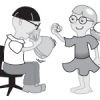
Raising the Level of Carbon Dioxide in Your Blood
Source Institutions
In this activity (on page 146 of the PDF), learners will explore the effects of increased carbon dioxide in the bloodstream.
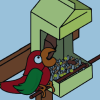
Bird Feeders
Source Institutions
In this activity, learners build a bird feeder or feeders to attract birds for observation.

The Self-Watering Terrarium
Source Institutions
In this biology/ecology activity, learners construct a terrarium out of a tennis ball container. This terrarium is unique because it never has to be watered.

Home Water Audit
Source Institutions
This activity offers learners and their families several ways to raise their awareness together about home water.

Catch the (Sound) Wave!
Source Institutions
See and hear how sound waves travel through different types of materials. Extend the experiment online and learn how you can "see" with sound waves using ultrasound.
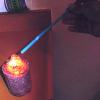
Hot Stuff!: Testing Ice
In this demonstration, learners compare and contrast regular water ice to dry ice (frozen carbon dioxide). Both samples are placed in a solution of acid-base indicator.
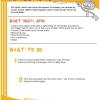
Ocean in a Bottle
Source Institutions
In this simulation activity, learners observe what can happen when ocean waves churn up water and oil from an oil spill.
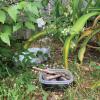
Build A Bee Bath
Source Institutions
In this activity, learners use found natural materials to create a water haven for bees and other insects.
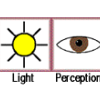
Seeing Your Blind Spot
Source Institutions
This activity (aka "snack") provides instructions for discovering your blind spot. It is an exploration of light and visual perception using simple materials you may have around the house.
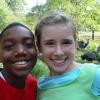
BioBlitz
Source Institutions
In this activity (on page 2 of the PDF under GPS: Biodiversity Activity), learners will pair up and take a notebook outdoors to a selected location to observe and record a list of living things that t

Color-Changing Carnations
Source Institutions
Learners place cut flowers in colored water and observe how the flowers change. The flowers absorb the water through the stem and leaves.
Catch the Beat
Source Institutions
This is an activity about music, movement, and math. Learners will start a rhythm pattern with 2, 3, or 4 beats. For instance, tap your foot, jump, clap, repeat.
Cardio Comparisons
Source Institutions
In this activity, learners discover how their heart rate changes in different situations.

Arrows
Source Institutions
In this activity, learners surprise their eyes with an optical illusion involving arrows made out of pipe cleaners.

A Penny Saved is a Penny Heard
Source Institutions
In this activity (11th activity on the page), learners use pennies to test their hearing acuity.
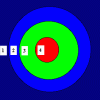
Drop IT!: Depth Perception
Source Institutions
These two activities (4th on the page) demonstrate the importance of two eyes in judging depth.
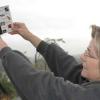
Ready to Observe: Enhance Your Telescope Experience
Source Institutions
This fun hands-on astronomy activity uses a variety of simple props to help learners understand why they see what they see in a telescope.

Seeing in the Dark
Source Institutions
In this activity (17th on the page), learners investigate why you cannot see colors in dim light.

Accommodating Accommodation
Source Institutions
In this demonstration (18th on the page), learners conduct a simple test to explore how the cornea refracts light, which is further bent by the eye lens through a process known as accommodation.

Shifting Backgrounds, Shifting Images
Source Institutions
In this quick activity/demonstration (5th on the page), learners explore depth perception.
